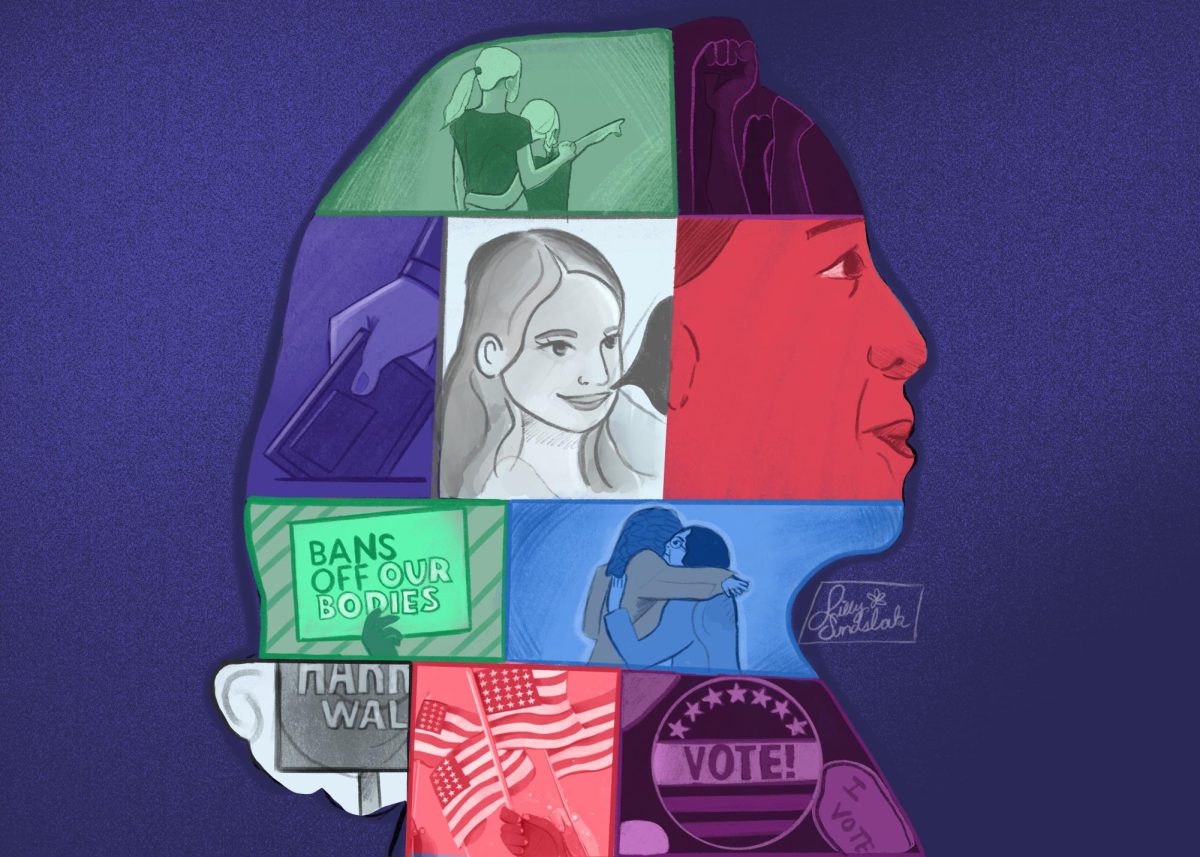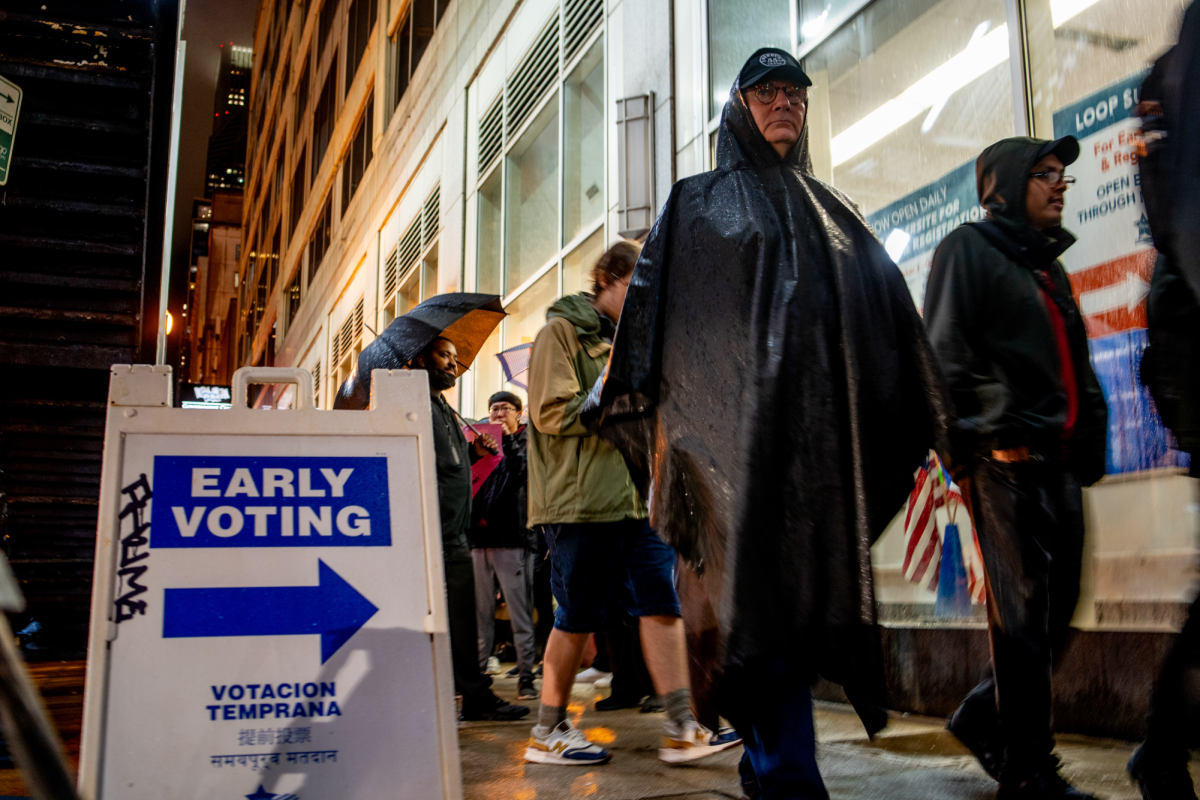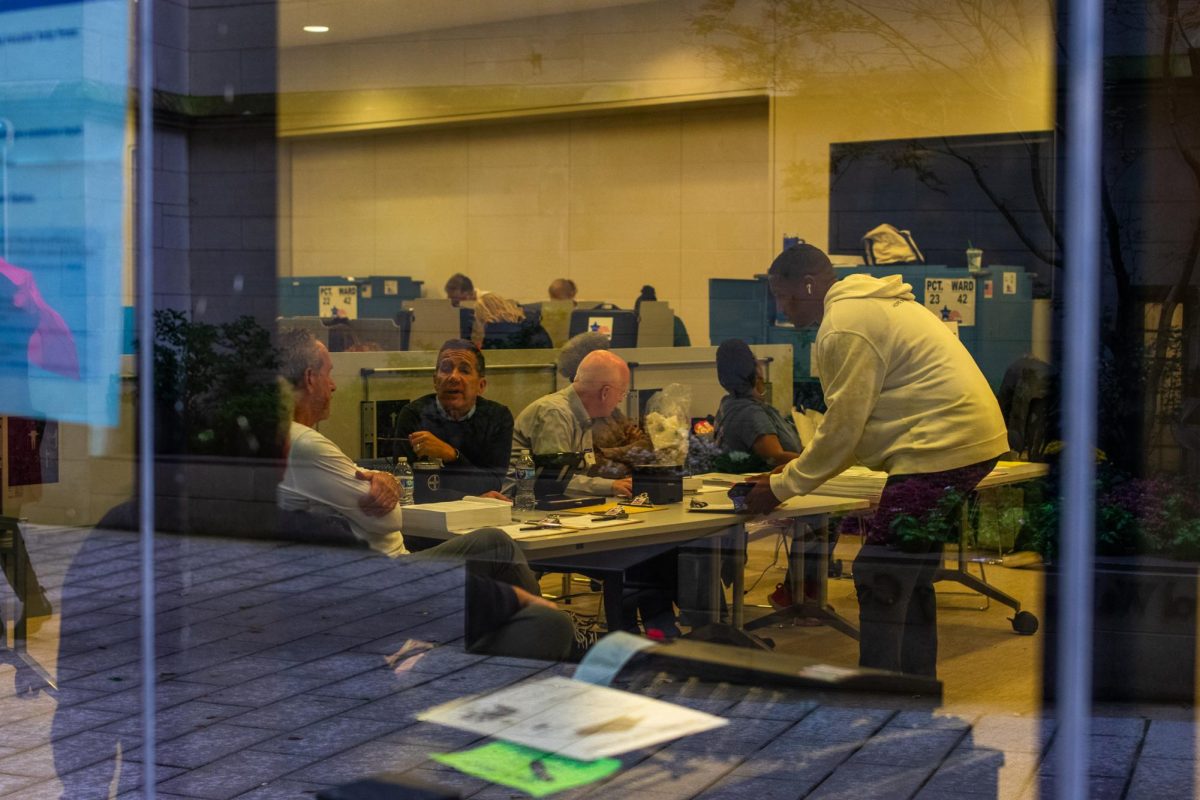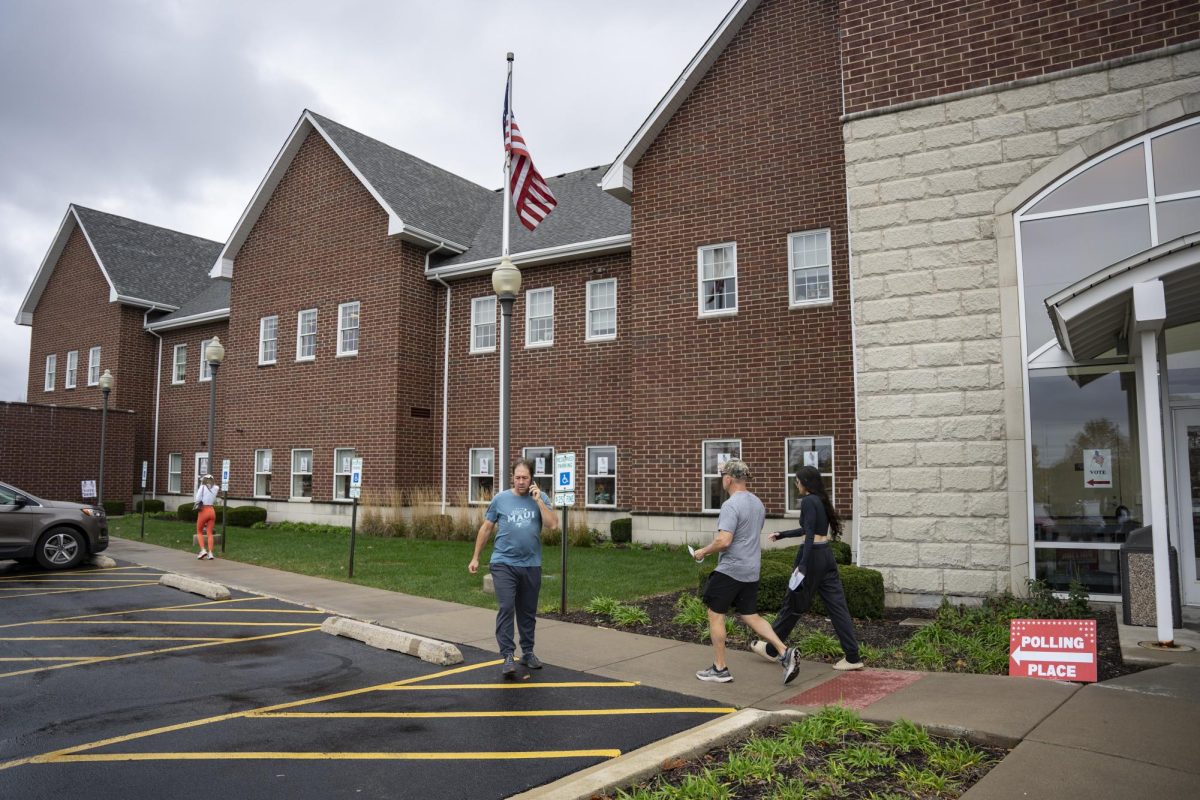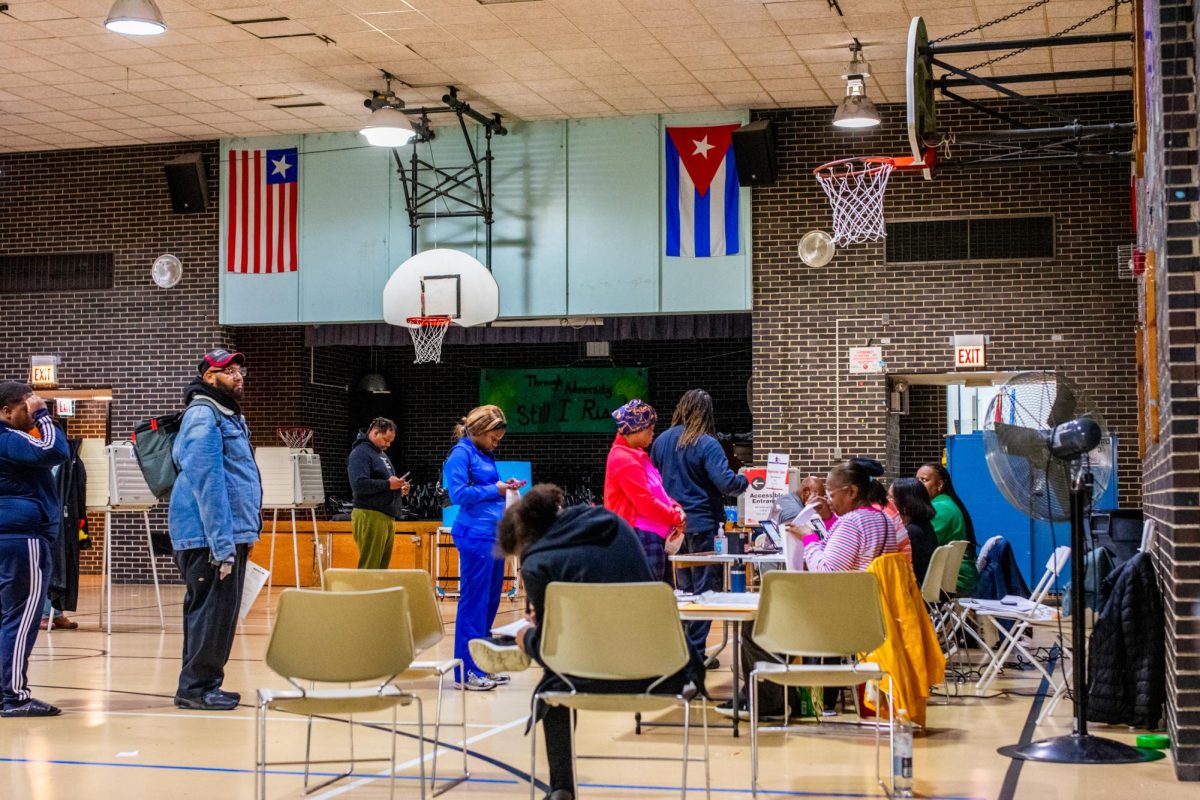Kamala Harris’ campaign to be the first woman president of the United States could mark a historic turning point in American politics, something that Columbia students are contemplating in the lead up to the Nov. 5 election.
Harris is the first Black and South Asian woman to lead a major party ticket for president and just the second person of color after Barack Obama.
The race is tight, with Harris and former President Donald Trump locked in tight battles in states like Pennsylvania, Michigan and Wisconsin, according to a poll from Quinnipiac University.
A Pew Research Center poll of registered voters published in early October found a larger gap between them among male and female voters.
The poll found 51% of male registered voters supporting Trump, and 43% supporting Harris. Among female registered voters, 52% support Harris, while 43% support Trump.
“When I hear the word ‘first woman president,’ I think of representation. I think that’s a huge one,” said Laysha Adame-Ramirez, a sophomore illustration major.
According to a study from Sabrina Karim, associate professor of government in the College of Arts & Sciences at Cornell University, the voting gender gap is expected to factor heavily in the 2024 election. Women remain staunchly Democratic, which could illustrate a new fault line in the electorate ahead of the 2024 presidential election, according to her findings.
A recent poll from Ipsos and Axios showed that 64% of women agreed that abortion will be a topic that will impact their decision.
Amelia Lutz, the executive vice president of the Student Government Association and a sophomore film and television major, agreed that reproductive rights are important to her.
“As a woman, I love to have the right to my own bodily autonomy, and the healthcare that allows me to have that,” she said. “I think those are both just super fantastic things, but I also think everyone has the right to choose their own body.”
As the conversation around women’s rights and healthcare intensifies, Lutz emphasized the importance of bodily autonomy and healthcare access. This is a sentiment echoed by Adame-Ramirez, the student who said it was important to have women in political leadership roles, especially for issues like abortion.
Mercy Bullen, a senior vocal music major, said it is important that women have the right to make choices about their own bodies.
“The overturning of that right is alarming, especially as many people begin to intertwine religion and politics,” Bullen said. “This seems contradictory to the principle of separation of church and state, which is being undermined in the current climate.”
If Harris was elected, there would likely be pushback, Adame-Ramirez said. Democratic candidate Hillary Clinton faced sexism in the 2016 campaign, and Harris has faced misogynist and racist comments in this election campaign.
“There have been a whole lot of disgusting jokes made about her, saying that she’s done very sexual things to get to the position she is at,” Adame-Ramirez said. “So I don’t doubt that that sort of stuff will continue due to people being incredibly disgusting and just not believing in a woman being able to be in power.”
Despite this, Adame-Ramirez was still hopeful for a woman to be elected president. She is optimistic that America will be open to embracing diverse leadership styles and perspectives that women bring to the table. Adame-Ramirez said that the growing movement for gender equality and representation in politics will pave the way for future generations.
“It’s just more of the older generation, more conservative-minded generation, I don’t think will be very open unless they see her do something amazing and extraordinary that benefits them,” Adame-Ramirez said.
The potential for a first woman president has more implications than policies. For example, Bullen said that it could be a huge step for the country to elect not only a woman but a woman of color.
“This would possibly be the first woman one,” Bullen said. “That’s the biggest milestone and being able to possibly see that is something that a lot of people would have never thought would have happened.”
Similarly, Lutz saw it as an opportunity for young girls to see women’s representation in politics. She noted that in recent years, a noticeable shift has emerged among young girls, reflecting a growing ambition to pursue careers in science and leadership.
These young girls are opting to describe themselves as “queens” rather than “princesses,” signaling a desire to take on more empowered roles. Alexandra Filindra, a professor of political science and psychology at the University of Illinois Chicago, said that a female president would bring new perspectives, especially for the younger generation.
“First woman president, it’s a major change for the U.S.,” Filindra said. ”Bringing a new sensibility to politics, women, we know from research, have somewhat different focus, in terms of issues and politics than do men. For a woman president, it is also a sign for others, for women and for young girls that they can go into politics and achieve great things.”
Having a first woman president would be very impactful; Bullen said that a woman’s perspective could be beneficial and even overdue.
She argued that female leaders often bring empathy and collaboration to decision-making processes, fostering more inclusive policies. By breaking the glass ceiling, a woman president could inspire future generations of young girls to pursue leadership roles, transforming societal norms around gender and power.
“Women’s rights is one of the things they’re turning the clock on right now, and I feel like with a president that is a woman that has the rights, that has shown that women deserve rights just as much as I feel like that’s really important,” Bullen said.
Copy edited by Vanessa Orozco


